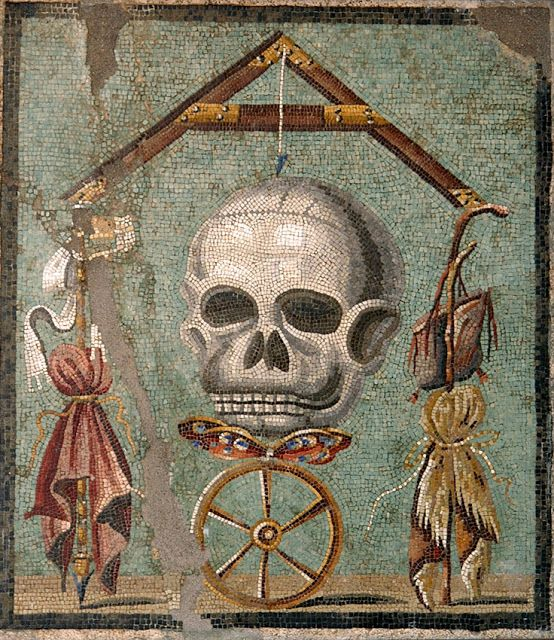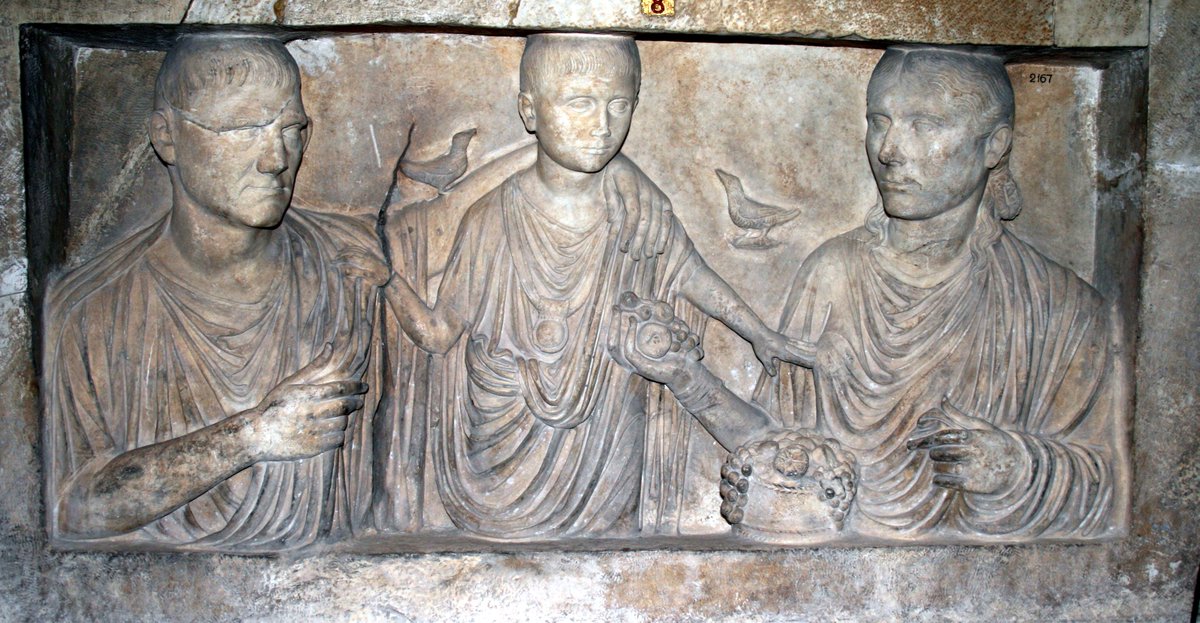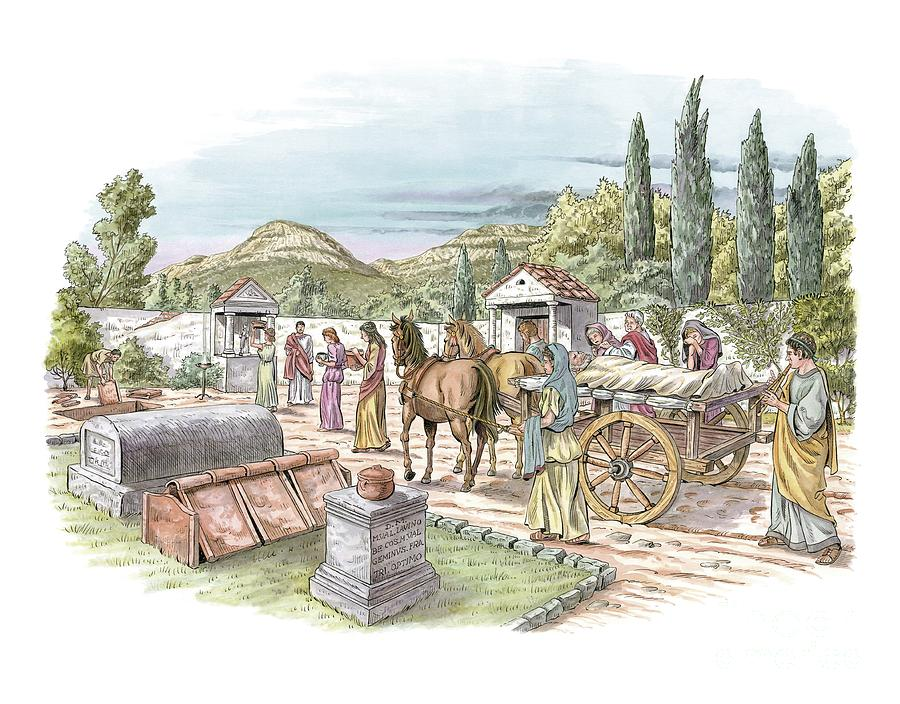𝐃𝐞𝐚𝐭𝐡 𝐫𝐢𝐭𝐮𝐚𝐥𝐬 𝐢𝐧 𝐚𝐧𝐜𝐢𝐞𝐧𝐭 𝐑𝐨𝐦𝐞
Rituals concerning funerals were connected with the ancient customs of ancestors and were a part of the ancestral cult. The funerals presented and preserved the heritage of the deceased but also of his family and gens.
Rituals concerning funerals were connected with the ancient customs of ancestors and were a part of the ancestral cult. The funerals presented and preserved the heritage of the deceased but also of his family and gens.
That is why the achievements of the deceased were praised alongside with the achievements of his ancestors. This is a clear representation how the ancestral cult was preserved – death was understood as coming back to your ancestors.
Romans believed that the spirit could only find peace when the remains of the deceased were placed properly in a grave. If that wouldn’t happen the spirit of the deceased would disturb the family bringing it bad luck. Proper funeral was, then, an obligation of his family.
Conceptual expression for this ritual was called iusta facere which points to the fact that a proper burial was indeed a right of the deceased person. When the funeral couldn’t be done, for example if the body was not found, the ceremonies were applied according to the rules.
Which is why we have cenotaphs (cenotaphium – meaning an empty grave from the Greek word κενοτάφιον) made in the honor of the deceased. This replaced the need for a real grave and gave the spirit the right to join their ancestors.
In theory, every Roman citizen was considered to be a member of the same family. This is connected to the fact that everyone originated from the same ancestor making the whole Roman state a part of an ancestral cult which connected them.
This obliged every Roman citizen to perform a death ritual for an unburied body he found. If, for some reason, the ritual of burying couldn’t be made it would be possible to scatter the ashes and dirt three times above the body of the deceased.
We have the most detailed descriptions of funeral ceremonies from the people of high status. These informations are collected from different sources and different eras so there is a risk to interpret ceremonies of the elites on the whole society, which likely wasn’t the case.
Funeral ceremonies changed with time depending of the cultural development and outside influences. What is certain is that the funeral of small children was always carried out simply and quietly, there were no special ceremonies for slaves and the…
Citizens of the lowest class were buried without the public parade. In the Roman word funeral ceremonies were carried out during night except for the last century of the Republic and in the first two centuries of the Principate. It is unclear why the change happened.
This is the first part of the series, I will write more about it soon.

 Read on Twitter
Read on Twitter









